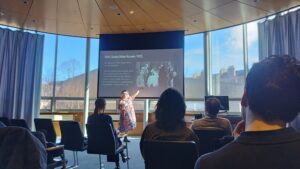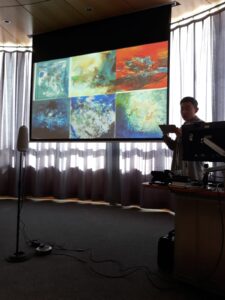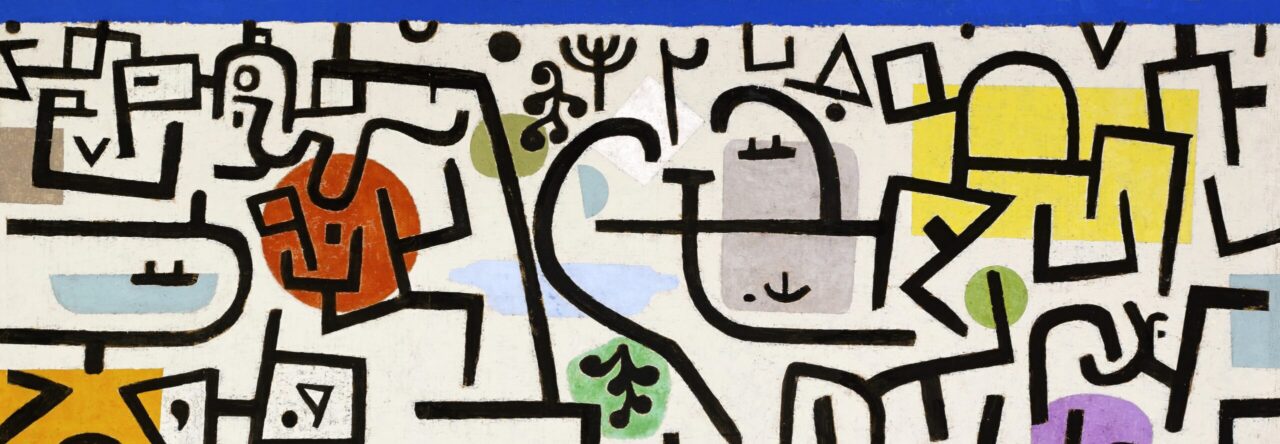WORLD LITERATURE AND INTERMEDIALITY
 An International and Interdisciplinary Workshop
An International and Interdisciplinary Workshop
Launch event of the new EUP book series “Edinburgh Critical Studies in World Literature and Intermediality”
University of Edinburgh – Thursday 13 and Friday 14 March 2025
* Click here to download the conference programme, or scroll down to see it online. For an abridged version, please follow this link
Over the past few decades, both World Literature and Intermediality have become well-established yet hotly debated concepts and fields of academic inquiry. However, they were developed and often treated as separate critical frameworks. In this second joint workshop of the research partnerships in intermedial studies between the University of Edinburgh and Meiji University (Tokyo, Japan), Linnaeus University (Sweden) and Aix-Marseille University (France), we wish to investigate the shared theoretical concerns between these two areas, renegotiating text-based approaches to World Literature with methods developed to study the intersections between other art forms.
World Literature designates the circulation of works from a global perspective, beyond their country and language of origin; it corresponds to an area of studies that emerged around the turn of the millennium with a specific set of theories informed by Postcolonialism, Cultural and Translation Studies. The emphasis of this critical framework is on the deconstruction of boundaries between disciplines, languages, cultures and media in the reception and study of literary works, beyond a Eurocentric perspective, an approach which makes it compatible with the interdisciplinary tenet of Intermediality. The latter has emerged as a prominent area of research in the Arts and Humanities since the 1980s. Focusing on the interrelationship between literature and other art forms, such as music, painting, photography, film, sculpture, architecture, dance, opera, video games, theatre and performance, Intermediality covers a broad range of border-crossing aesthetic phenomena like the graphic novel or photo-literature that we would like to investigate from the global and transversal perspective of World Literature. We also wish to explore the increasing reliance on a variety of media and art forms in the production of literary texts, which corresponds to a major aesthetic trend in World Literature. These aesthetic explorations fueled by migrations, multilingualism, transcultural interactions, and multi-media artistic practices are, indeed, rapidly reshaping the production, circulation, reception, and critical analysis of literary and artistic works on a global scale.
This event will mark the launch of the new EUP book series “Edinburgh Critical Studies in World Literature and Intermediality”, which shares the key aims of the workshop.
Themes, issues and methodologies to be explored include:
-creative code- and mode-switching practices such as photo-literature, the graphic novel, screen adaptation, ekphrasis, and word and music/image combinations.
-intercultural and intermedial relations in all literary genres (novels, life writing, poetry, theatre…) produced in English and other languages across the globe.
-critical inquiries fostering interdisciplinarity and a global approach to literature and other art forms, including music, painting, drawing, photography, cinema, theatre and performance, opera, video games, installation art, architecture, dance, graphic novels and manga.
-translation between languages, cultures and media, i.e. intermedial translation processes.
-translingualism, multilingualism and medial transpositions.
-multi-art, intermedial aesthetic movements (e.g. Dada, Surrealism, Fluxus…).
-approaches showcasing work by non-Western scholars and/or on non-Western topics (Middle East, Africa, Asia, Latin America…).
Proposed timetable
Each paper should be around 15 minutes. Question sessions should be 20-30 minutes and are held after all the papers on the panel.
Thursday 13 March
Chrystal MacMillan Building, Seminar Room 1 (ground floor)
09:10-09:15 Welcome & Workshop Introduction
09:15-10:00 Keynote 1: Niklas Salmose (Linnaeus), “The Medial Affordances of Nostalgia”
(Chair: Fabien Arribert-Narce)
10:00-11:15: Panel 1: Intermedial border crossings – from theatre and poetic prose to various screen (non-)adaptations and live performances (Chair: Inma Sanchez-Garcia)
-Federica G. Pedriali (Edinburgh), “‘Invisible Cities’: Intermedial Variations and the Global Utopia of Art”
-Sébastien Lefait (Aix-Marseille), “Seeing Shakespeare everywhere. From the intermedial presence of Shakespearean patterns to a definition of non-adaptation”
-Lily Beckett (Bristol), “On the Perimeters of Poetry and Performance: ‘Significant Geographies’ and Intermedial Form in Bhanu Kapil’s Ban en Banlieue (2014)”
11:15-11:30 Coffee break
11:30-12:45 Panel 2: Intercultural adaptations between Eastern and Western canons – from pre-modern literature to film and other contemporary media (Chair: Beate Schirrmacher)
-Benoît Tane (Aix-Marseille), “Intermediality and Interculturality in the Globalized Reception of Laclos’s Les Liaisons dangereuses”
-Mariko Naito (Meiji), “Humans like dolls or dolls like humans? A transmedial analysis of the premodern Japanese play The Courier for Hell (1711) and the film Dolls (2002)”
-Yufeng (Lincoln) Li (Edinburgh), “Reimagining the Epic of Gilgamesh through Generative AI: a Vision for a Posthuman Literature-to-film Adaptation”
12:45-13:45 Lunch break
Lister Learning and Teaching Centre, Room 4.3 (fourth floor)
13:45-14:35 Panel 3: Intermedial afterlives – the journey of iconic characters across cultures and media (Chair: Sébastien Lefait)
-Saana Sutinen (Linnaeus), “The Journey of Superhero Film Music Across Media and the Globe”
-Ruth Menzies (Aix-Marseille), “Popularity, politics and populism: Gulliver’s travels in cartoon and caricature”
14:35-15:25 Panel 4: Poetry, music and painting – the transmission of affect between silence and singular voices (Chair: Sarah Tribout-Joseph)
-Benoît Loiret (Edinburgh), “Poets listening to the silent music of painting: John Ashbery’s and Yves Bonnefoy’s art criticism”
-Alexandra Huang-Kokina (Edinburgh), “AI Crafting Collective Creativity? The case of adapting Yotsuya Kaidan (a Kabuki Play) into science-fiction opera”
15:25-15:45 Coffee break
15:45-17:00 Panel 5: On the production, translation and circulation of books in a global market (Chair: Jørgen Bruhn)
-Beate Schirrmacher (Linnaeus), “What is literature if not a book? An intermedial approach to literature in a digitized world”
-Alex Watson (Meiji), “Packaging Japan: Paratexts for English Translations of Japanese Literature”
-Martin van der Linden (Linnaeus), “Dark Academia and Its Discontents: The Aesthetics of the Western Canon on BookTube”
17:15-18:30 Graduate networking session
Friday 14 March
50 George Square, Project Room (Room 1.06, first floor)
09:15-10:00 Keynote 2: Shuangyi Li (Bristol), “Intermediating Sino-African Transcultural Memory: Yvonne Owuor’s The Dragonfly Sea and Zao Wou-Ki’s Paintings”
(Chair: Fabien Arribert-Narce)
10:00-10:50: Panel 6: Museums, archives and memory – articulating multiple voices and identities via reclamation and resistance (Chair: Alex Watson)
-Laura Osorio Salazar (Edinburgh), “Hidden possibilities in the ‘museum world’: An Experience of Interaction and Resistance at the Museo de la Ciudad Autoconstruida”
-Andy Stafford (Leeds), “‘Belsunce, Don’t forget me!’ Anonymous Passport Photos in Marseille and Multiple Voices of Reclamation”
10:50-11:05 Coffee break
11:05-12:20 Panel 7: Intermedial ecocriticism – storytelling and eco-media in a global economic system (Chair: Niklas Salmose)
-Jørgen Bruhn (Linnaeus), “Environmental Grotesque Ecomedia”
-Anna Ishchenko (Linnaeus), “Environmental Melancholy in Disco Elysium as an Intermedial Narrative Experience: Exploring Transmediations of the Ecological Crisis Conditions in Narrative Video Games”
-Yagmur Atlar (Linnaeus), “Creating Ecologies to Communicate: An Intermedial Analysis of Chantal Bilodeau’s Sila”
12:20-13:20 Lunch break
13:20-14:10 Panel 8: Transcultural re-interpretations and appropriations in global literature and cinema (Chair: Alice Blackhurst)
-Julia Larsen (Edinburgh), “The Monstrosity Between: The Remediated and Transculturated Zombie, from Haiti to the United States”
-Evan Falls (Edinburgh), “Poetry of the Mundane: How Directors Use Musicality to Develop Theme in Paterson and Perfect Days”
14:10-15:00 Panel 9: Intermedial cinema – phenomenology, hypermediacy and remediations (Chair: Inma Sanchez-Garcia)
-Weiyi Yan (Edinburgh), “The Gaze in Portrait of a Lady on Fire (2019): Phenomenological Intersections of Painting and Film”
-Sirui Xu (Edinburgh), “A Life in Counterpoint: Chronicle of Anna Magdalena Bach as an Anti- and Meta-Biopic”
15:00-15:25 Coffee break
15:25-17:00 Panel 10: Ways of reading/looking – genre-defying fiction and textual hybridity (Chair: Emmanuelle Lacore-Martin)
-Rumiko Oyama (Meiji), “What Transduction of the Written Narrative Reveals: Reading ‘Blanks’ in Kazuo Ishiguro’s A Pale View of Hills”
-Alexandra Smith (Edinburgh), “Joseph Brodsky’s essay ‘Flight from Byzantium’ (1985) as Postmodern Literary Tourism”
-Niki Cleland-Hura (Edinburgh), “Liberation through Media Subversion: Intermediality in Alain Locke’s The New Negro”
-Marco Ruggieri (Edinburgh), “Double Intermediality in Umberto Eco’s The Mysterious Flame of Queen Loana”
***
WORLD LITERATURE AND INTERMEDIALITY
An International and Interdisciplinary Workshop
Launch event of the new EUP book series “Edinburgh Critical Studies in World Literature and Intermediality”
Thursday 13 and Friday 14 March 2025, University of Edinburgh
Keynote speaker: Dr Shuangyi Li (University of Bristol)
Please send your abstract and short bio-bibliographical note to F.Arribert-Narce@ed.ac.uk
250-word Abstract Submission deadline: 1st December 2024
Over the past few decades, both World Literature and Intermediality have become well-established yet hotly debated concepts and fields of academic inquiry. However, they were developed and often treated as separate critical frameworks. In this second joint workshop of the research partnerships in intermedial studies between the University of Edinburgh and Meiji University (Tokyo, Japan), Linnaeus University (Sweden) and Aix-Marseille University (France), we wish to investigate the shared theoretical concerns between these two areas, renegotiating text-based approaches to World Literature with methods developed to study the intersections between other art forms.
World Literature designates the circulation of works from a global perspective, beyond their country and language of origin; it corresponds to an area of studies that emerged around the turn of the millennium with a specific set of theories informed by Postcolonialism, Cultural and Translation Studies. The emphasis of this critical framework is on the deconstruction of boundaries between disciplines, languages, cultures and media in the reception and study of literary works, beyond a Eurocentric perspective, an approach which makes it compatible with the interdisciplinary tenet of Intermediality. The latter has emerged as a prominent area of research in the Arts and Humanities since the 1980s. Focusing on the interrelationship between literature and other art forms, such as music, painting, photography, film, sculpture, architecture, dance, opera, video games, theatre and performance, Intermediality covers a broad range of border-crossing aesthetic phenomena like the graphic novel or photo-literature that we would like to investigate from the global and transversal perspective of World Literature. We also wish to explore the increasing reliance on a variety of media and art forms in the production of literary texts, which corresponds to a major aesthetic trend in World Literature. These aesthetic explorations fueled by migrations, multilingualism, transcultural interactions, and multi-media artistic practices are, indeed, rapidly reshaping the production, circulation, reception, and critical analysis of literary and artistic works on a global scale.
This event will mark the launch of the new EUP book series “Edinburgh Critical Studies in World Literature and Intermediality”, which shares the key aims of the workshop. We invite abstracts for twenty-minute papers in English exploring the topic of the workshop as broadly and creatively as possible. Contributions on other topics related to intermediality and multimodality studies will also be considered.
Themes, issues and methodologies to be explored and considered include:
-creative code- and mode-switching practices such as photo-literature, the graphic novel, screen adaptation, ekphrasis, and word and music/image combinations.
-intercultural and intermedial relations in all literary genres (novels, life writing, poetry, theatre…) produced in English and other languages across the globe.
-critical inquiries fostering interdisciplinarity and a global approach to literature and other art forms, including music, painting, drawing, photography, cinema, theatre and performance, opera, video games, installation art, architecture, dance, graphic novels and manga.
-translation between languages, cultures and media, i.e. intermedial translation processes.
-translingualism, multilingualism and medial transpositions.
-multi-art, intermedial aesthetic movements (e.g. Dada, Surrealism, Fluxus…).
-approaches showcasing work by non-Western scholars and/or on non-Western topics (Middle East, Africa, Asia, Latin America…).



Leave a Reply